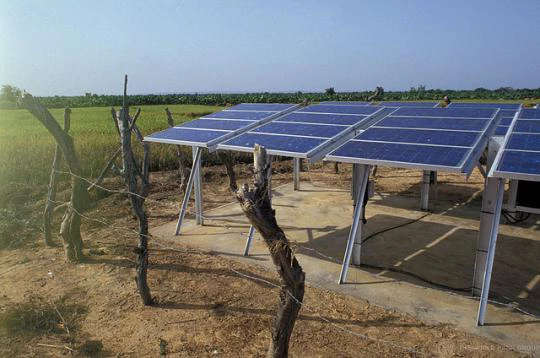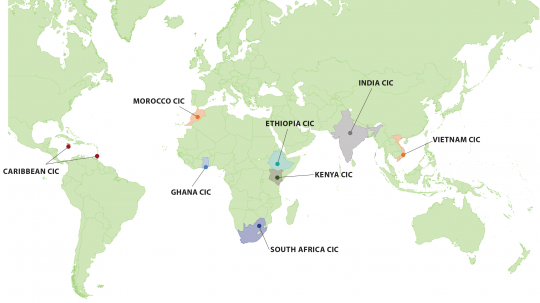
Building competitiveness, resilience to climate change, and innovative local industries. Not to mention improving access to clean water and affordable energy, while creating local green jobs. It’s not every day that these multiple objectives come together in an opportunity that is ripe for the taking in developing countries.
How can this be achieved? As the new infoDev/World Bank report ‘Building Competitive Green Industries: The Climate and Clean Technology Opportunity in Developing Countries’ highlights, countries that successfully develop local climate and clean technology industries can achieve significant progress toward these multiple objectives.
The study, with technical analysis prepared by The Carbon Trust, has assessed the potential market for 15 emerging clean technology sectors in the developing world. Together, investments in these sectors are estimated to reach up to US$6.4 trillion over the coming decade (2014-2023). Even more promising, US$1.6 trillion of that sum represents business opportunities for small and medium-sized enterprises (SMEs), which are important drivers of high-quality job creation and competitiveness in technology sectors.
This encouraging data might seem to contradict the picture often painted by the media. In fact, while much media attention has been given to a recent ‘slump’ in the ’green revolution’ in developed countries, increasing clean-technology investments in developing countries offers a contrasting story. The data collected for the study highlights a 19 percent increase in investments in 2012, along with a strong expected growth over the coming decade.
So what are the clean technologies driving this trend? Renewable Energy Technologies (RETs) – such as solar, wind and geothermal power – immediately come to mind. However, clean technologies – climate and environmentally friendly solutions – cover several other sectors. For example, the transportation sector features such clean technologies as electric vehicles, electric bicycles, and bus rapid transit that improve mobility without increasing emissions.
Climate-smart agriculture is another important sector where clean technologies, such as highly efficient irrigation systems and climate-resilient crops, are becoming increasingly mainstreamed as countries seek resilience to climate change. Speaking of adaptation to climate change, wastewater treatment, water management and purification technologies provide tremendous business opportunities while making the most of ever-more-scarce water resources.
So the data confirm the potential, but how is the private sector embracing it? Surveys in India and Kenya illustrate that clean technology companies in developing countries are already working themselves into global value chains as suppliers, distributors and service providers. Even more promising is the fact that a large percentage of these firms are moving from business activities with low barriers to entry – such as installation and maintenance – into more challenging but potentially higher-value-added activities, such as product design and manufacturing.
But here’s the catch. Clean-tech firms have higher upfront capital requirements, longer payback periods for investors, and a heavier reliance on government policy than other technology sectors. SMEs in particular face significant barriers to entry despite their key role in developing locally appropriate technologies and business models. Countries that aim to be competitive in clean-technology sectors need models – some of which are highlighted in the report – to address the unique challenges faced by clean-tech firms.
So, what can be done to support the competitiveness of local clean-technology industries? The report offers suggestions for stakeholders in five areas: entrepreneurship and business acceleration, innovation finance, market development, technology development, and the legal and regulatory framework.
In line with these guidelines, infoDev’s Climate Technology Program has been supporting local clean technology industries with targeted initiatives that support entrepreneurs in their startup and early growth stages. These include various early-stage financing instruments, mentorship and advisory support for business owners, assistance for developing new technologies, and platforms for policy dialogue. This support is delivered through locally run Climate Innovation Centers (CICs). CICs are planned in eight countries with the goal of developing a pipeline of local clean technology companies that can attract the scale-up investments and resources needed to support sector-wide growth.
Given the $6.4 trillion market opportunity, countries that effectively support local clean-technology industries are poised to capture important economic and environmental benefits, while increasing agricultural output and improving access to energy and clean water. In many cases, it turns out, doing the right thing for the environment is also doing the smart thing for the economy.




Join the Conversation